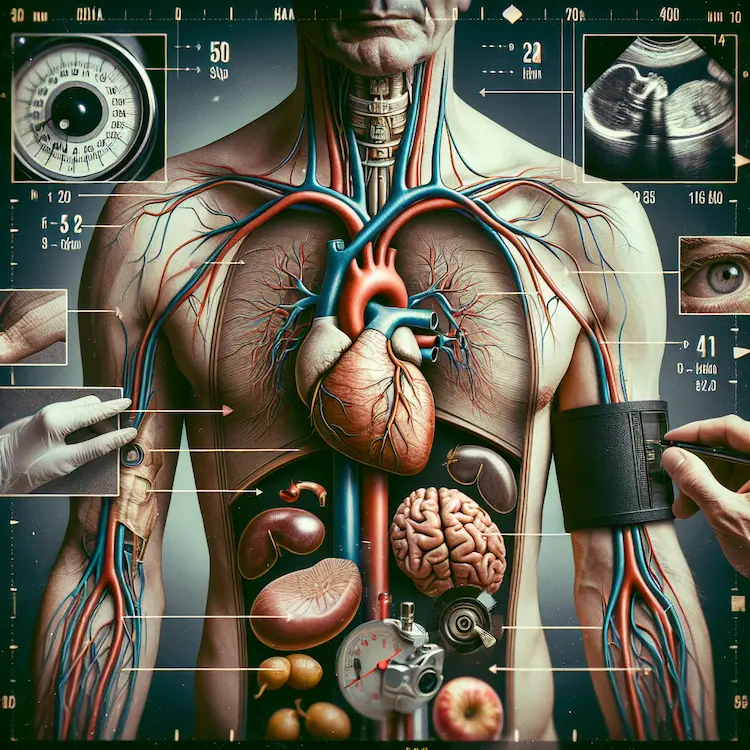High blood pressure, also known as hypertension, is a serious medical condition that affects millions of people worldwide. When left untreated, it can lead to severe health complications and significantly impact a person’s quality of life. This article explores the long-term effects of untreated high blood pressure, discussing its impact on various organs and systems in the body.
High blood pressure occurs when the force of blood against the artery walls is consistently higher than normal. Blood pressure is measured in millimeters of mercury (mm Hg) and is recorded as two numbers:
A blood pressure reading of 130/80 mm Hg or higher is generally considered high.

Untreated high blood pressure can have devastating effects on the heart. Over time, it can lead to:
High blood pressure is a major risk factor for stroke. It can cause blood vessels in the brain to burst or become clogged more easily, leading to a stroke .The damage can result in:
The kidneys play a crucial role in regulating blood pressure. Untreated hypertension can severely impact kidney function:
High blood pressure can affect the delicate blood vessels in the eyes, leading to various vision issues:
Untreated hypertension can impact sexual health in both men and women:
Long-term hypertension can affect brain function and increase the risk of cognitive decline:
Surprisingly, untreated high blood pressure can even affect bone health:
| Organ System | Primary Effects | Potential Complications |
|---|---|---|
| Heart | Enlarged heart, arterial damage | Heart attack, heart failure |
| Brain | Blood vessel damage | Stroke, cognitive decline |
| Kidneys | Impaired filtration | Kidney disease, kidney failure |
| Eyes | Blood vessel damage | Vision loss, retinopathy |
| Sexual organs | Reduced blood flow | Erectile dysfunction, decreased libido |
| Bones | Increased calcium loss | Osteoporosis |
Hypertension is a widespread health issue with significant global impact:
These statistics highlight the urgent need for better awareness, diagnosis, and treatment of high blood pressure.

Preventing and managing high blood pressure is crucial to avoid its long-term effects. Here are some strategies:
Untreated high blood pressure can have severe and wide-ranging effects on the body, impacting virtually every major organ system. From heart disease and stroke to kidney failure and vision loss, the consequences of uncontrolled hypertension are serious and potentially life-threatening.
However, with proper awareness, regular monitoring, and a combination of lifestyle changes and medical treatment when necessary, it’s possible to manage high blood pressure effectively. By taking action to control your blood pressure, you can significantly reduce your risk of these long-term complications and improve your overall health and quality of life.
Remember, high blood pressure is often called the “silent killer” because it typically has no symptoms. Regular check-ups and blood pressure screenings are essential for early detection and management. If you haven’t had your blood pressure checked recently, make an appointment with your healthcare provider today. Your future self will thank you for taking this important step towards better health.